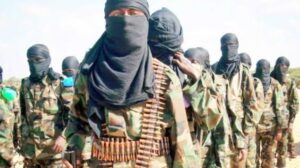
The Northern Elders’ rejection of foreign military bases reflects a failure to prioritise national security over political interests. The rise of groups like Lukarawa demands decisive action and collaborative efforts, both domestic and international, to restore stability in Northern Nigeria. Without this, the region risks further descent into chaos, undermining Nigeria’s fragile unity.
The emergence of the Lukarawa terror group in Sokoto and Kebbi states has raised significant concerns about the security situation in Northern Nigeria. This group’s rise to prominence comes after the Northern Elders rejected the establishment of foreign military bases in the region.
The Lukarawa group’s attack on the Mera community in Kebbi State, resulting in 15 deaths and the theft of 100 herds of cattle, highlights the severity of the situation. Their use of modern military weapons, including drones, has also sparked concerns about the potential for further violence.
According to security experts, the members of Lukarawa were initially mercenaries hired by Fulani communities in Sokoto and Kebbi states to protect their livestock from banditry. However, they decided to form their own group, which has now become a significant threat to national security.
Rather than addressing the insecurity, Northern Elders urged President Bola Tinubu in May 2024 not to allow foreign military bases in the region. This stance appears to prioritize concealing leadership failures over finding solutions to the insecurity plaguing the North.
Allowing foreign military bases could have helped stabilize parts of Northern Nigeria and reduced bandit attacks. Moreover, it could have limited the influx of mercenaries from Chad, Niger, Mali, and Sudan, who are fueling the cycle of violence that risks spreading across Nigeria.
The rise of groups like Lukarawa demands decisive action and collaborative efforts, both domestic and international, to restore stability in Northern Nigeria. President Bola Ahmed Tinubu has been urged to summon Hausa and Fulani leaders to address grievances and implement short-, medium-, and long-term solutions encompassing social, economic, and political reforms.
To combat the growing threat posed by Lukarawa, a holistic approach from all stakeholders is necessary. This includes urgent collaboration amongst local, state, and federal governments, as well as between leaders of affected communities, including their religious and traditional rulers.
The Federal Government must also ensure that budgetary allocations to fight insecurity are expended transparently and accountably. Additionally, decisive action must be taken to prosecute highly placed Nigerians fingered as sponsors of terrorism.

